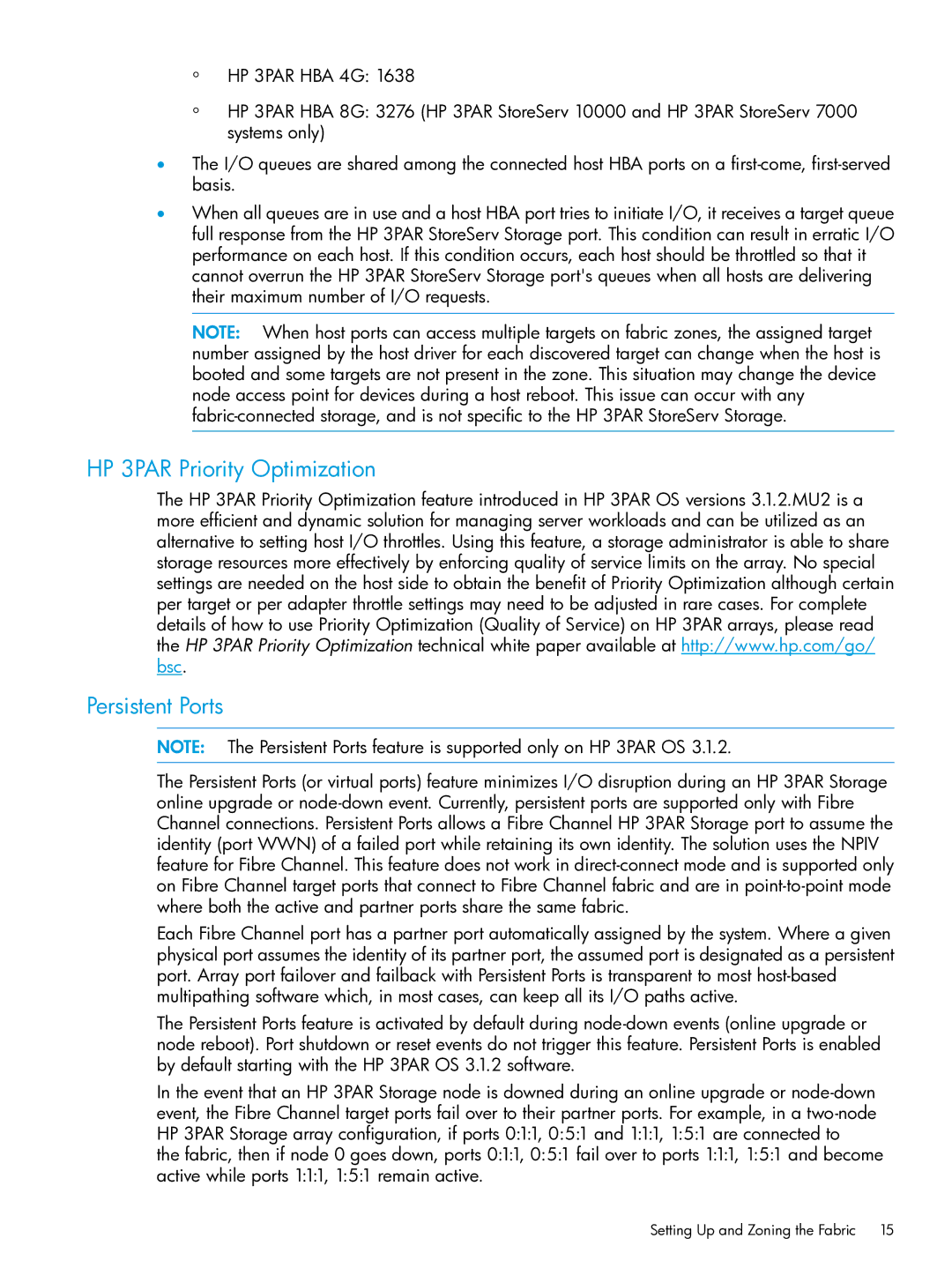
◦
◦
HP 3PAR HBA 4G: 1638
HP 3PAR HBA 8G: 3276 (HP 3PAR StoreServ 10000 and HP 3PAR StoreServ 7000 systems only)
•The I/O queues are shared among the connected host HBA ports on a
•When all queues are in use and a host HBA port tries to initiate I/O, it receives a target queue full response from the HP 3PAR StoreServ Storage port. This condition can result in erratic I/O performance on each host. If this condition occurs, each host should be throttled so that it cannot overrun the HP 3PAR StoreServ Storage port's queues when all hosts are delivering their maximum number of I/O requests.
NOTE: When host ports can access multiple targets on fabric zones, the assigned target number assigned by the host driver for each discovered target can change when the host is booted and some targets are not present in the zone. This situation may change the device node access point for devices during a host reboot. This issue can occur with any
HP 3PAR Priority Optimization
The HP 3PAR Priority Optimization feature introduced in HP 3PAR OS versions 3.1.2.MU2 is a more efficient and dynamic solution for managing server workloads and can be utilized as an alternative to setting host I/O throttles. Using this feature, a storage administrator is able to share storage resources more effectively by enforcing quality of service limits on the array. No special settings are needed on the host side to obtain the benefit of Priority Optimization although certain per target or per adapter throttle settings may need to be adjusted in rare cases. For complete details of how to use Priority Optimization (Quality of Service) on HP 3PAR arrays, please read the HP 3PAR Priority Optimization technical white paper available at http://www.hp.com/go/ bsc.
Persistent Ports
NOTE: The Persistent Ports feature is supported only on HP 3PAR OS 3.1.2.
The Persistent Ports (or virtual ports) feature minimizes I/O disruption during an HP 3PAR Storage online upgrade or
Each Fibre Channel port has a partner port automatically assigned by the system. Where a given physical port assumes the identity of its partner port, the assumed port is designated as a persistent port. Array port failover and failback with Persistent Ports is transparent to most
The Persistent Ports feature is activated by default during
In the event that an HP 3PAR Storage node is downed during an online upgrade or
the fabric, then if node 0 goes down, ports 0:1:1, 0:5:1 fail over to ports 1:1:1, 1:5:1 and become active while ports 1:1:1, 1:5:1 remain active.
Setting Up and Zoning the Fabric 15
